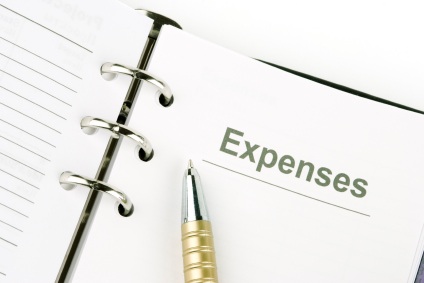Getting Past the Irrepressible Gatekeeper!
As a sales professional in B2B sales the first significant milestone in the sales process is getting past the Gatekeeper. This might not be an easy process, but the truth is you have limited sales possibilities until you master getting past, or in some cases around this individual. Let’s spend some time discussing some tips on how to get you past the gatekeeper.
Working with the Gatekeeper
The Gatekeeper’s role is simply to screen calls and visitors. As you know the calls are screened to allow his/her boss to be efficient and focused. You and I both know that one of the items that will make increase efficiency and effectiveness is your product or service!
Chances are you may have received some training in how to do this, or have been doing it long enough that you have your own techniques, but this general refresher cannot harm you.
Here are some tips in regard to getting past the gatekeeper, keeping in mind that sometimes getting past the gatekeeper is simply getting around the gatekeeper.
Getting past the Gatekeeper:
- Befriend the Gatekeeper – A vast majority of Gatekeepers are helpful professionals. They are doing their job. They should be treated well. Be personable but not phony. You may find an ally here.
- Do not send anything in writing – Many Gatekeepers will ask you to send information. What do you think happens to this information once sent? Advise that the information you send is based on the needs of the account. Let the Gatekeeper know that you need to talk with that buyer to discuss what is needed.
- Keep it vague – Remain vague, as you do not want the Gatekeeper making decisions as to the worth of your product or service.
- Don’t settle for another contact – Chances are you will never talk to the decision maker after electing to talk to a surrogate.
- Always use the buyer’s first name – Familiarity is important. Use the first name if you know that his/her first name is used.
- Call back when the gatekeeper says to call – This is important even if you don’t get through. Remind the Gatekeeper of this when you call.
- Agree to early appointments – Offer for an early appointment (telephone or in person).
- Drop Names – This can give credibility. “I work with ABC Company across the street.
- Use Referrals – Referrals build credibility if appropriate. “John Johnson of ABC Company next door requested I call Mr. Jones, and I am doing it.”
- Practice all Scenarios and be prepared for each call – Be prepared knowing your responses to the common objections. It is projected that the gatekeeper knows 3-4 objections, and readily uses at least 2 objections. Anticipate the objections.
- Follow-Up is a must – You must track the conversations with notes and follow-up. Don’t miss an opportunity.
- Never show frustration – Your 10th call should have the same tone as your first. Display no rudeness or sarcasm
- Never pose as someone you are not – You are a sales professional, not the IRS, Police, or a relative.
Another Approach – Getting Around the Gatekeeper
Sometimes you cannot convince the Gatekeeper of the importance of your visit. If that is so, you might need to be resourceful. I am not a total advocate of all of these, yet you may need to try some different measures.
- Call during the lunch hour – There is a good possibility that the Gatekeeper will be out and you will talk to a ‘stand-in’ who is easier with information.
- Call Early or Late- This may get you through to the buyer without interference from the gatekeeper. Many buyers are in the office as early at 7:00A.
- ‘Misdirection’ - Call one number different than your buyer (Gatekeepers number 445-5858 so dial 445-5857) When you get the wrong number, say which number you dialed and who you want to speak to. In many cases they will connect you to the buyer, as it will look as if the call is from another department, not the outside.
- Ask the Operator for accounts receivable or the mailroom - They are not trained to screen calls. Once you get that department, tell the person on the phone that you want to speak to ‘John Buyer’, and they will try to connect you. Same principle as above.
- Always ask for the extension – When you do get someone to attempt to connect you make sure to ask for the extension “so you do not have to bother anyone again!” This should be a habit.
- Listen well to the voicemail message- Note the return date, any alternative contacts, and remember you don’t have to leave a message.
You can make it to the buyer but need to be creative and professional. There is no way to be successful until you hone these skills. Keep good notes and always know the name of person that you are talking to. Remember the Gatekeeper is a person who desires respect for his/her position.
Be Memorable
Imagine being in a job where people who are supposed to be professionals treat you rudely and with dispatch when you are doing your job? That is a reality in the Gatekeeper’s role. Make a positive impression and be personable. They will remember you. Your treatment of the person in this role will make the difference. If it does not work, you still must accomplish your mission, and will have to consider Getting Around the Gatekeeper.
Someone will get through at some point, and your hope is for it to be you. Know the techniques and give it your best shot. Remember that it is your first milestone in this important customer relationship.
Never give up! Thanks for reading. We look forward to your comments. You can reach me at Michael.Parker@BlackSalesJournal.com.
 June 8, 2015
|
Posted by Admin9!
June 8, 2015
|
Posted by Admin9!

 Categories:
Categories:  Tags:
Tags: 

Your Comments